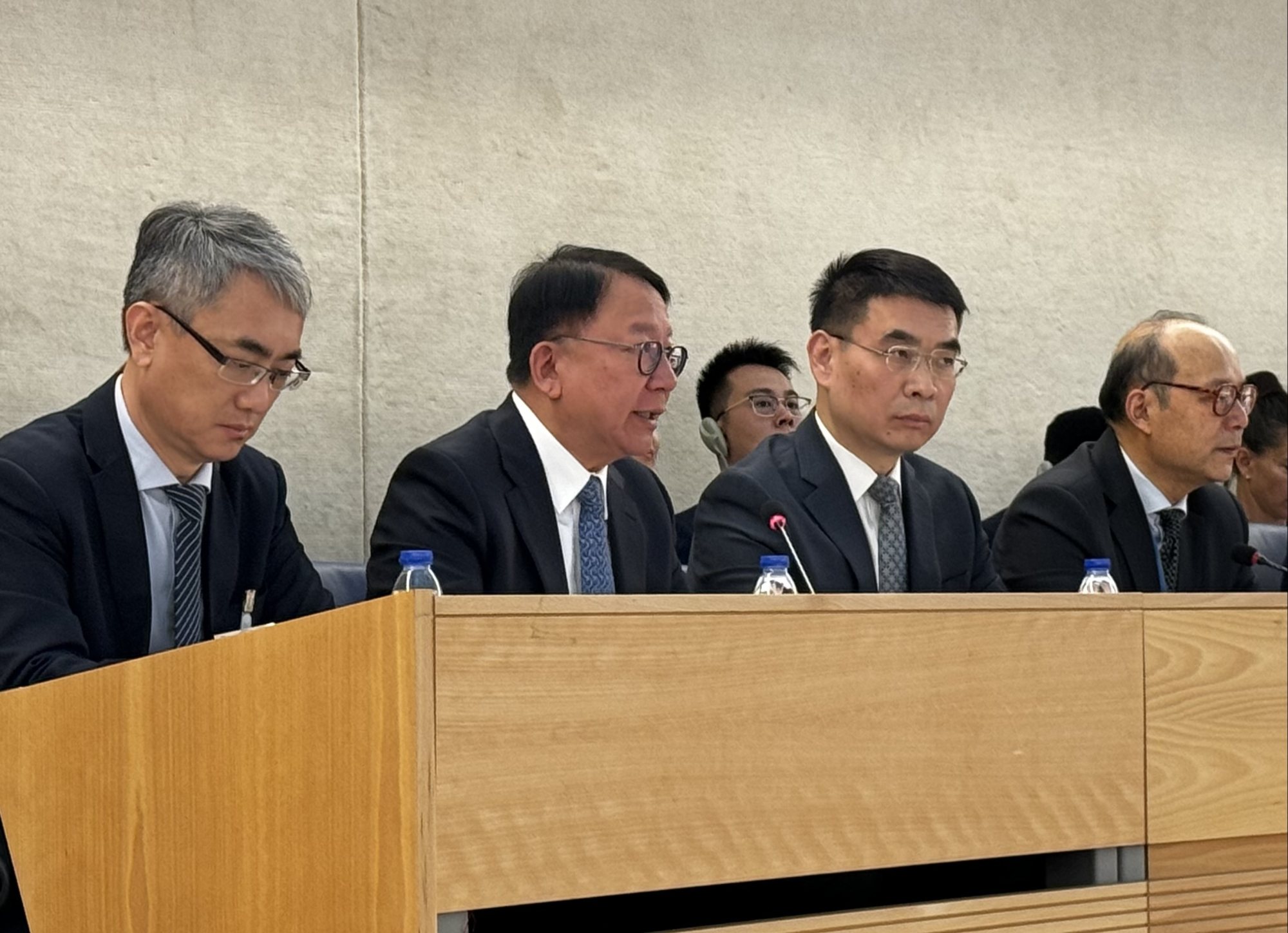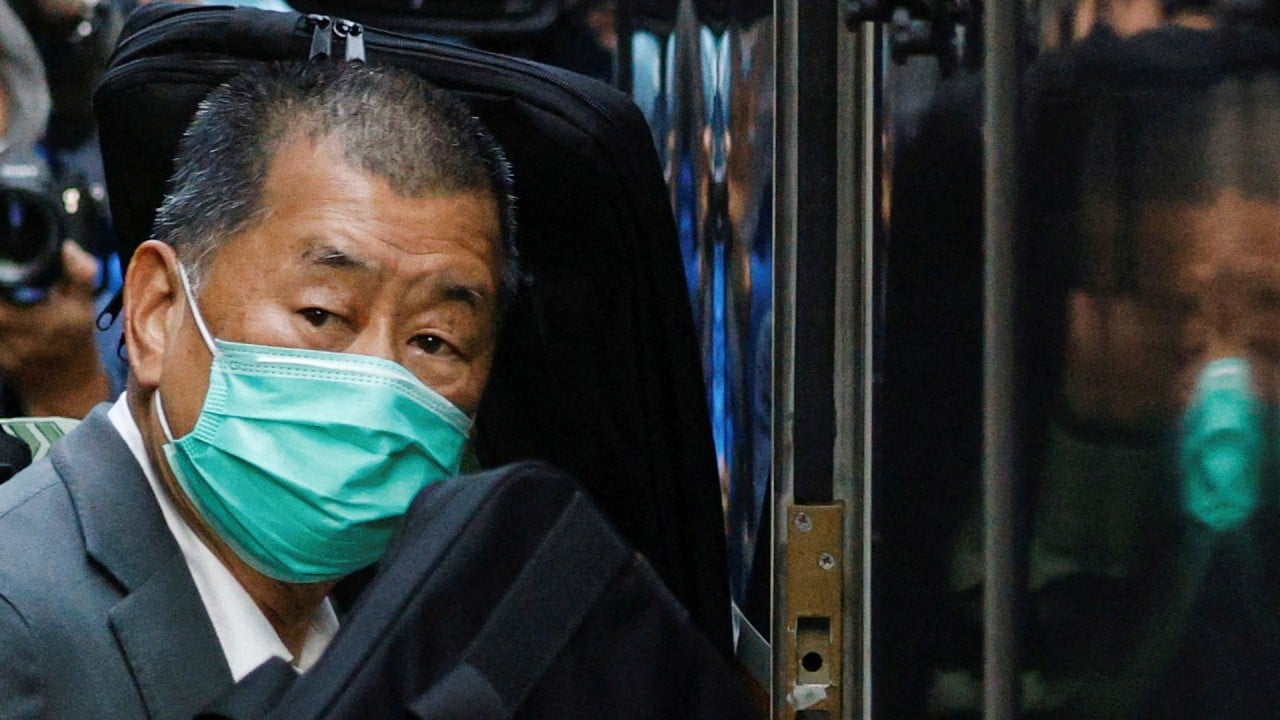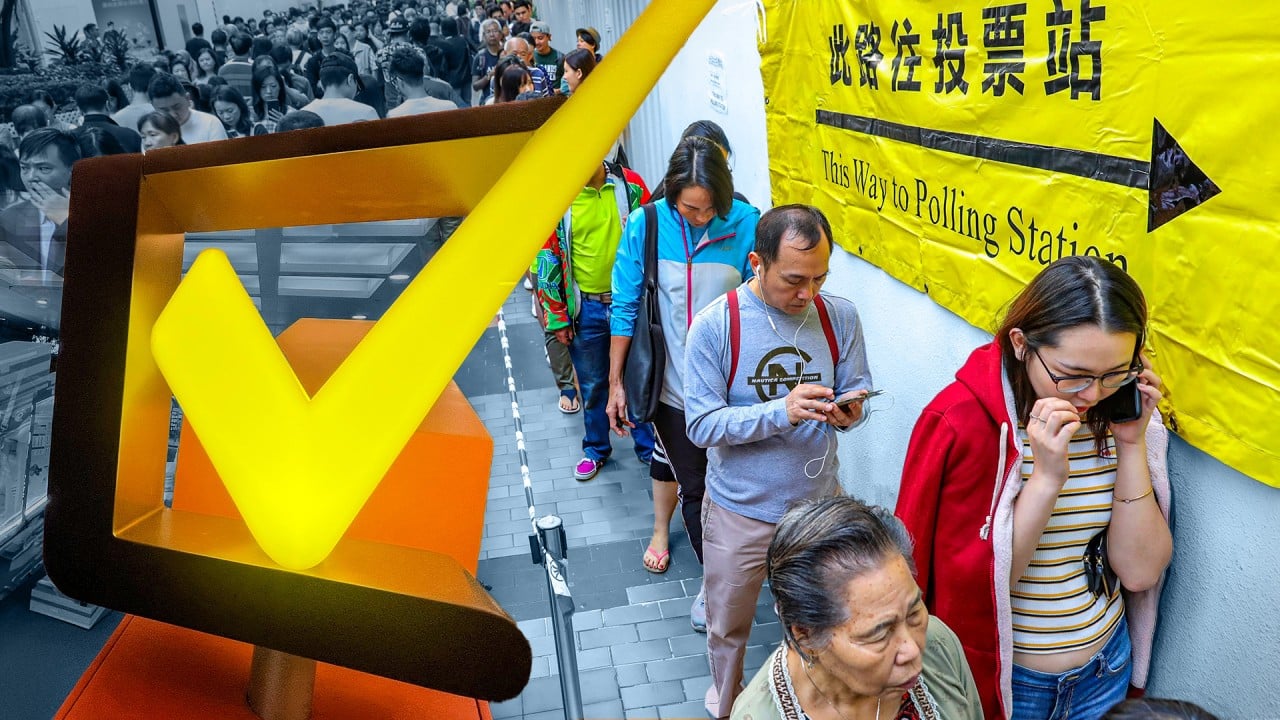
2020 national security law put Hong Kong ‘back on track’, city’s No 2 official tells UN human rights review in Geneva
- Eric Chan tells review by UN Human Rights Council that the Beijing-imposed legislation means ‘days of social disturbance and fear are now over’
- But several countries and human rights groups criticise legislation and call for it to be ditched
Chief Secretary Eric Chan Kwok-ki, the city’s No 2 official, speaking in Geneva on Tuesday as part of China’s fourth universal periodic review by the UN Human Rights Council, said the security legislation had put Hong Kong “back on track”, despite a barrage of criticism from Western nations and organisations.
“Stability as well as law and order has been restored, and our city is back on track.
“Our people can continue to enjoy the legitimate rights and freedoms guaranteed by our country’s constitution, the Basic Law [the city’s mini-constitution], as well as the relevant provisions of international covenants that apply to Hong Kong.”

The national security law, imposed by Beijing on the city in June 2020 after months of anti-government protests, was designed to penalise acts of secession, subversion, terrorism and collusion with foreign forces, with a maximum penalty of life in prison.
Shen Bo, the director general of the Chinese government’s Department of International Organisations and Conferences of the Foreign Ministry, also came to the defence of Hong Kong.
He said that “some organisations and countries” had “fabricated lies” about the city, as well as Tibet and Xinjiang, and had used the review as a platform to “defame China”.
“The central government has taken a series of measures to end the violence and chaos in Hong Kong and bring stability,” he added.
Western human rights concerns about Hong Kong
But several Western nations, including the United States, Britain, Germany, France, Canada, Denmark and Ireland, raised concerns about civil rights in the city at the review and some called for the legislation to be repealed.
Simon Manley, the UK’s permanent representative to the UN, said the national security law should be repealed and that prosecutions, including against Jimmy Lai Chee-ying, the founder of the now-closed Apple Daily tabloid newspaper, should cease.
Hong Kong justice minister defends courts’ impartiality in national security cases
Michelle Taylor, the US permanent representative to the UN Human Rights Council, called for an end to “vague national security, counter-espionage, counterterrorism and sedition laws, including the national security law in Hong Kong”.
Germany called for the restoration of “full respect for the rule or law, civil society and political rights in Hong Kong”.
But Chan hit back at criticisms during the working group and insisted the demands “clearly come from misconceptions”.
“No country will watch with folded arms in the face of acts and activities that endanger national security,” Chan said.
“Violent and random assault took place on our streets like never before … the Hong Kong national security law was enacted precisely to tackle this situation, to bring back security, stability, as well as the rights and freedoms which people in Hong Kong had been deprived of during such a period of serious violence.”
Chan added that discussion of ongoing national security cases such as Lai’s was “inappropriate” but said, in general terms, those found to have broken the law should face the penalty.
“The suggestion that certain individuals or groups should be immune from legal consequences for illegal acts is no different from advocating a special pass to break the law,” he said.
West slammed for ‘double standards’
Chan’s stance was backed by Chris Tang Ping-keung, the city’s security chief, who wrote on social media that the national security law had brought back rights and freedoms suspended because of the anti-government protests in 2019.
Tang also accused some Western countries of hypocrisy and double standards.
Hong Kong’s Jimmy Lai behind efforts to get Trump to sanction China, trial told
Lawmakers Nixie Lam Lam and Lillian Kwok Ling-lai of the Democratic Alliance for the Betterment and Progress of Hong Kong, Peter Shiu Ka-fai, the Liberal Party chairman, and architectural, surveying, planning and landscaping sector legislator Tony Tse Wai-chuen were also among those who voiced support for Chan.
Chen Xu, China’s permanent representative to the council, added in his closing statement that “some countries” had tried to “smear China” through “unfounded rumours and lies”.
“We are ready to continue having friendly dialogue on an equal footing with the countries concerned to enhance trust, dispel doubts, and deepen mutual understanding.”
Xu said that China had notched up “historic achievements” in its human rights development, such as “the right to survival and development” and “democratic rights”.
“We are ready to continue constructive human rights dialogue and cooperation with all parties on the basis of equality and mutual respect, to learn from each other [and] make progress together,” he added.
The periodic UN review
The universal periodic review is a peer-review mechanism under the UN Human Rights Council that all 193 member states must undergo every 4½ years.
Mainland China, with Hong Kong and Macau, last went through the process in 2018.
The Hong Kong government highlighted that press freedom and freedom of expression were protected under the Basic Law in its report to the council before the review.
It added that the number of media companies in the city had increased by 39 per cent and the number of trade unions had gone up by 60.7 per cent since 2018.
Hong Kong judges must uphold integrity amid overseas pressure: chief justice
A number of groups, including Amnesty International and the Washington-based Hong Kong Democracy Council, also called on the city’s government to repeal the law.
The democracy council also asked for the “release of all political prisoners” in their submissions made before the review.
The UN Human Rights Committee – a body of independent experts which monitors the implementation of the International Covenant on Civil and Political Rights (ICCPR) – in 2022 released a report that appealed to Hong Kong to repeal the national security law because of an “overly broad interpretation” and “arbitrary application” of the legislation.
But the Hong Kong government rejected the criticisms as “unfair and unfounded”, and insisted the law had “fully taken into consideration” the ICCPR and that human rights were protected under the legislation.
A group of UN experts released a statement on the eve of the review that called for the release of Lai, who is on trial on allegations of sedition and national security offences.
“Jimmy Lai Chee-ying’s arrest, detention and series of criminal proceedings over the past few years appear to be directly related to his criticism of the Chinese government and his support for democracy in the Hong Kong Special Administrative Region,” they said.
The experts included Irene Khan, the special rapporteur on the protection and promotion of freedom of opinion and expression, and Margaret Satterthwaite, the special rapporteur on the independence of judges and lawyers.
Additional reporting by Jess Ma



